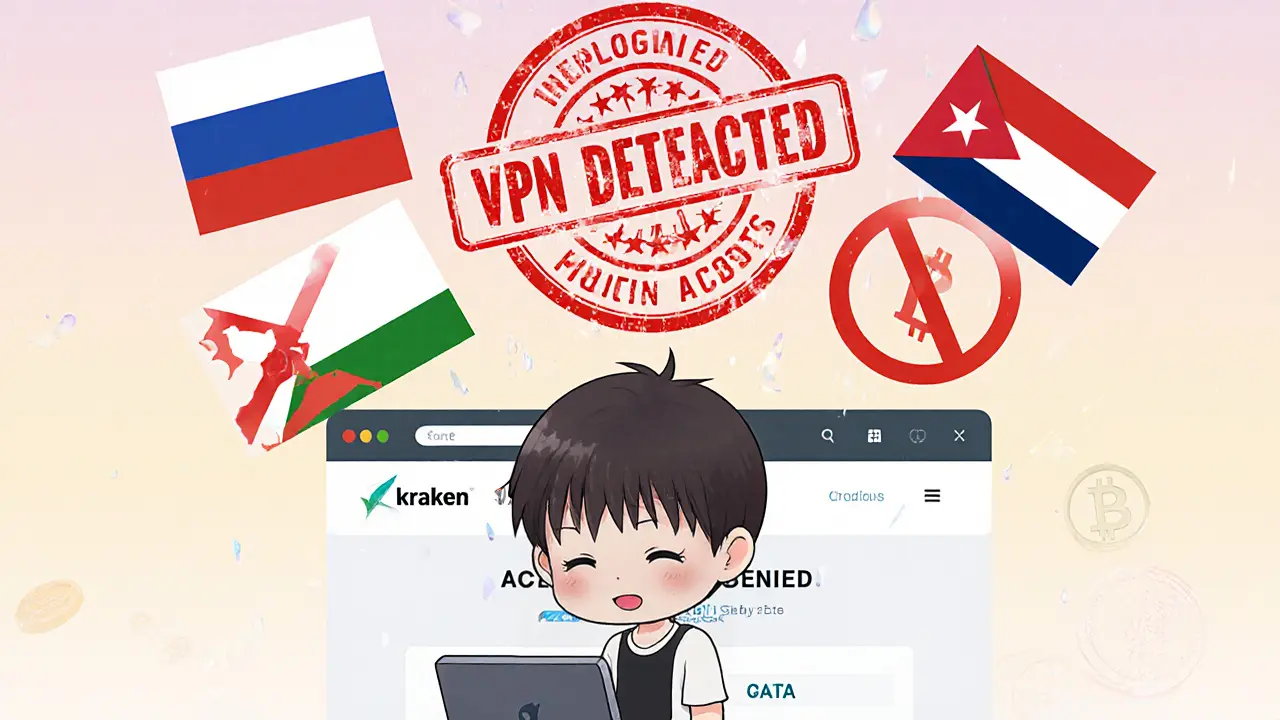Kraken Trading Bans: Why Users Get Locked Out and How to Stay Safe
When you hear about a Kraken trading bans, restrictions placed by the Kraken crypto exchange on user accounts that prevent trading, withdrawals, or deposits. Also known as account freezes, these are not random errors—they’re usually tied to compliance, identity verification, or regulatory pressure. Kraken is one of the few major exchanges that still operates openly in the U.S. and other strict jurisdictions, which means it plays by the rules—even when those rules hurt users.
These bans don’t happen because you traded too much or lost money. They happen because your ID didn’t match your address, your transaction looked like money laundering, or you were flagged by a third-party monitoring tool. Some users get locked out after depositing funds from a now-blacklisted wallet. Others get banned because they used a VPN or didn’t update their documents after moving countries. Kraken doesn’t guess—it follows FinCEN, FATF, and state-level rules. That’s why it’s still around while exchanges like ezBtc and CoinRui vanished overnight.
Related to this are crypto exchange restrictions, policies enforced by platforms to comply with local laws, often limiting access for users in high-risk regions. These aren’t unique to Kraken. Ecuador bans bank transfers for crypto. Saudi Arabia blocks direct access. Canada demands MSB registration. Kraken just enforces them harder because it has to. That’s why you’ll see posts here about Canadian licensing, Saudi workarounds, and why some exchanges disappear—because they couldn’t keep up. The same compliance systems that protect Kraken from being shut down are the ones that freeze your account without warning. And if you’ve ever wondered why your withdrawal got stuck for weeks, it’s likely not a tech issue—it’s a paperwork issue.
There’s also Kraken account freeze, a specific outcome where a user’s ability to move funds is suspended, often due to incomplete KYC, suspicious activity, or regulatory requests. This isn’t the same as a hack or a scam. It’s a legal hold. And unlike sketchy exchanges that vanish with your cash, Kraken will usually give you a path to get back in—if you jump through their hoops. But those hoops are real: government-issued ID, proof of address, source of funds, even bank statements. No shortcuts. No exceptions. You can’t blame Kraken for this. You can only blame yourself for not keeping your documents current.
What you’ll find in the posts below are real stories of people caught in these systems. Some got banned because they used a crypto mixer. Others were flagged for trading with a wallet linked to a darknet market. One guy lost access after moving from Texas to California and forgot to update his address. These aren’t conspiracy theories—they’re documented cases from users who tried to fix it, failed, and wrote about it. You’ll also see how other exchanges handle this differently, why some countries force exchanges to ban users, and what you can do to stay off the radar without breaking the law.
If you’re using Kraken, you’re not just trading crypto—you’re navigating a minefield of global regulations. The best way to survive? Stay documented. Stay transparent. And never assume your account is safe just because you’ve been trading for years. One outdated document, one flagged transaction, and it all changes overnight.

